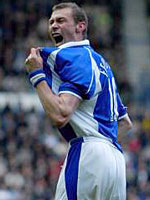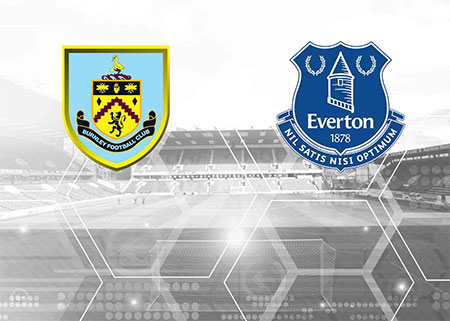Fans Comment
|
If you know your history�these blues are no brothers.
The Scotsman story highlighting the �historic ties� between Everton and Rangers might not be worth commenting upon if it had not sparked a lively debate in the Liverpool Echo and elsewhere � threatening to recrudesce long-buried bigotries. The truth is that the world of top-flight football is very small. You can take just about any two major clubs and find a series of unrelated and coincidental links. The real relationships in football � and these are the interesting ones � tend to be personal and individual. Over the last 113 years, since the first transfer between the two clubs, just 13 Rangers players have joined Everton � on average, one every 8� seasons. Only two Rangers players, Duncan Ferguson and Alex Cleland, have joined Everton in the last decade and one, Ian Durrant, on a short and unmemorable loan. Even if you stretch that decade back to 1992 and include Paul Rideout, that�s not what I would call so very fraternal. In the opposite direction, two players, Stuart McCall and Michael Ball, were transferred from Everton to Rangers in the space of 10 years. Rangers were committed to bringing more Scottish talent to a team being criticized for having too many English and foreign players. McCall could have been playing for Southend and they still would have made an offer. That same week, a certain Rangers winger was sold to� Liverpool. And when Walter Smith was given a testimonial match the opposition was� Liverpool. When the Mullah of Mediocrity sold Michael Ball, Liverpool was at the head of the queue but Ball did not want to face the inevitable consequences. Middlesbrough was second in line but would not part with Paul Ince, who was part of Smith�s asking price � God help us. Rangers were a distant third choice. Ball�s going to Rangers had more to do with persuasive Trevor Steven, Ball�s agent, who played for both clubs, as with any supposed fraternal relationship between the Masters of the Mersey and the Kings of the Clyde. Ironically, the most glaring and catastrophic example of the recent dealings between Everton and Rangers is consigned to footnote status in the Scotsman. No Evertonian needs to be reminded of the ill-starred and dire nature of one former Rangers manager�s tenure at Goodison. You would think our experience with the dark days of Smith & Knox would be enough to kill off any fraternal feelings that actually did exist, if they existed. But Smith is a good example of how relationships really work in football, not always successfully. He bought a Scot, John Collins, from Monaco, with whom he had worked when Collins was still a youth player at Dundee Utd. He bought Olivier Dacourt from Strasbourg, having noticed him when Strasbourg demolished both Rangers and Liverpool in the UEFA Cup. And Dacourt and Collins�s experience of the French league helped persuade him to buy Montpellier�s Ibrahima Bakayoko, which turned out to be Swahili for �I�m really 39 and I�ve no idea where the goal is.� Later, Alex Nyarko sought out his friend Olivier Dacourt for advice about a proposed move to the Premiership. The last chapter of that saga is about to be written... Smith also signed Richard Gough at the age of 37, primarily because of their previous experience together � twice � at Rangers. Similarly, Smith believed � mistakenly on both counts � that signing his friend and former Rangers stalwart Paul Gascoigne was a way of rescuing both Everton�s season and Gazza�s career. Perhaps the article's most ludicrous assertion is that the fraternal relationship between Rangers and Everton exists despite Everton's supposedly Catholic roots. Contrary to a widespread misconception, St Domingo�s was a Methodist Church, and Everton FC was product of the philosophy of �Muscular Christianity.� Eventually, an influx of Irish players � and Irish immigrants to teh City of Liverpool � created a significant Catholic fan base. But, while there was once a sectarian divide in Liverpool, it has long since died and seems likely to remain buried. Finally, the Scotsman hardly mentions the most infamous episode of competitive play between the two clubs, the 1963/64 �British Championship� which Everton won 4-2 on aggregate. The games were punctuated by terrace violence and followed by whisky fuelled pitched battles with the police. Some Brothers... Peter Fearon
|

 THE term �Blues Brothers� to describe Rangers and Everton may look
great as a headline � but just how strong are the ties that supposedly
bind the two clubs? Not very, given the most cursory analysis of
THE term �Blues Brothers� to describe Rangers and Everton may look
great as a headline � but just how strong are the ties that supposedly
bind the two clubs? Not very, given the most cursory analysis of 






